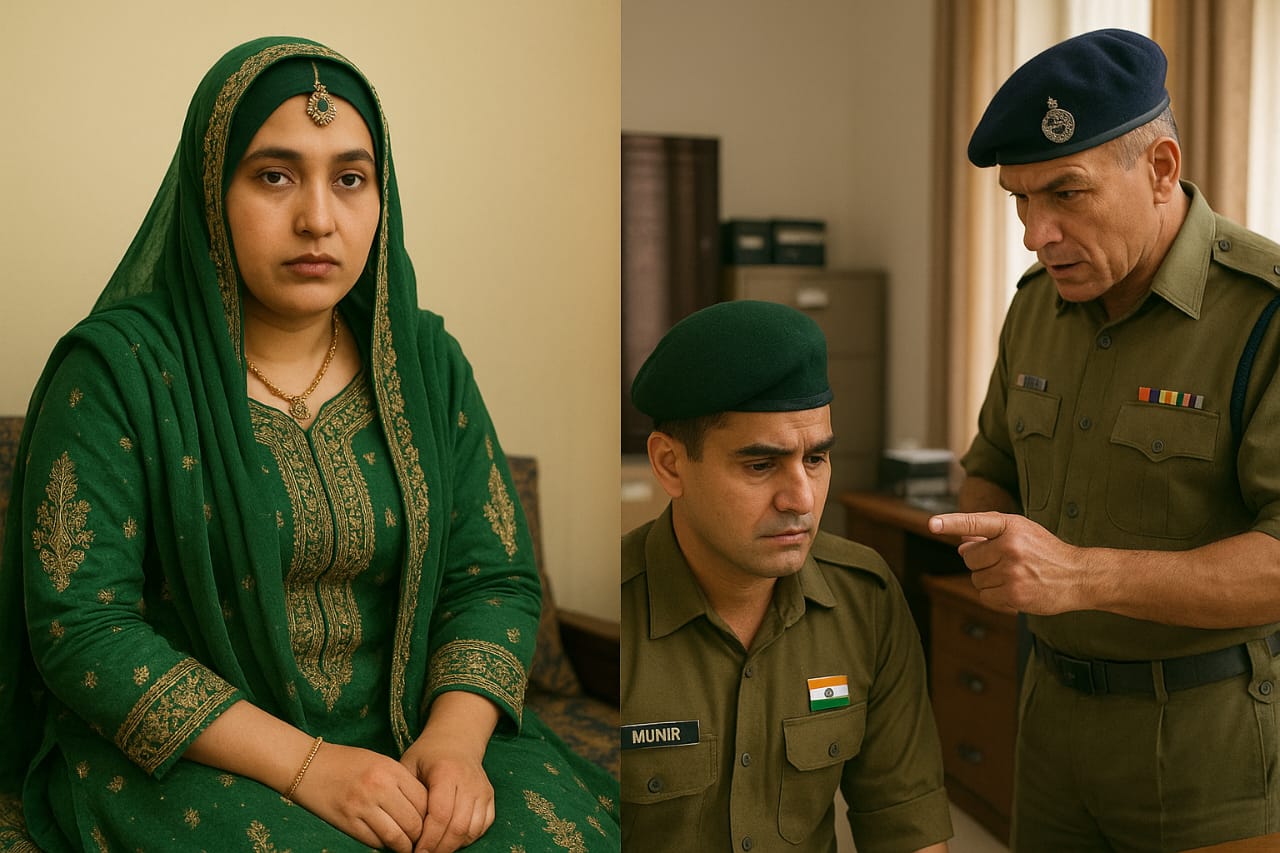In a significant development, the Central Reserve Police Force (CRPF) is set to initiate disciplinary action against Constable Munir Ahmed for marrying a Pakistani national, Menal Khan, without the required departmental approval. The marriage, which took place through a WhatsApp video call on May 24, 2024, has raised serious concerns about procedural violations and potential threats to national security.
Also Read: Pakistani Wife of a CRPF Soldier Sent back to Pakistan
Constable Ahmed had earlier requested permission to marry Menal Khan. However, before the department could process his request, the marriage was solemnised digitally, circumventing official approval. Furthermore, the constable failed to inform the department about his wife’s extended stay in India beyond the validity of her tourist visa, which expired on March 22, 2025. This omission, along with misleading statements made during court proceedings, has led to a formal review and disciplinary action by the CRPF.
The CRPF report highlights several lapses in the constable’s conduct. It details how Menal Khan, who entered India via the Wagah Border on a Pakistani passport, continued to reside in the country after her visa expired. Additionally, Constable Ahmed failed to inform the department that his wife had applied for a long-term visa, despite making such claims.
This incident comes amidst heightened security concerns following the recent Pahalgam terror attack. The Indian government’s directive to deport all Pakistani nationals has further amplified the issue, with Menal Khan being taken to the Wagah Border for deportation. However, a stay order from the Jammu and Kashmir High Court on April 29, 2025, has temporarily halted the deportation process.
The CRPF’s internal review has concluded that Constable Ahmed violated conduct rules under Rule 21(3) of the CCS (Conduct) Rules, 1964. As a result, the CRPF is now considering disciplinary action, which could have serious implications for Ahmed’s future within the force.
This case highlights the growing tensions surrounding security concerns and the need for strict adherence to protocol, especially when dealing with matters involving individuals from Pakistan. The outcome of this disciplinary action will be closely watched as it may set a precedent for how such cases are handled in the future.













